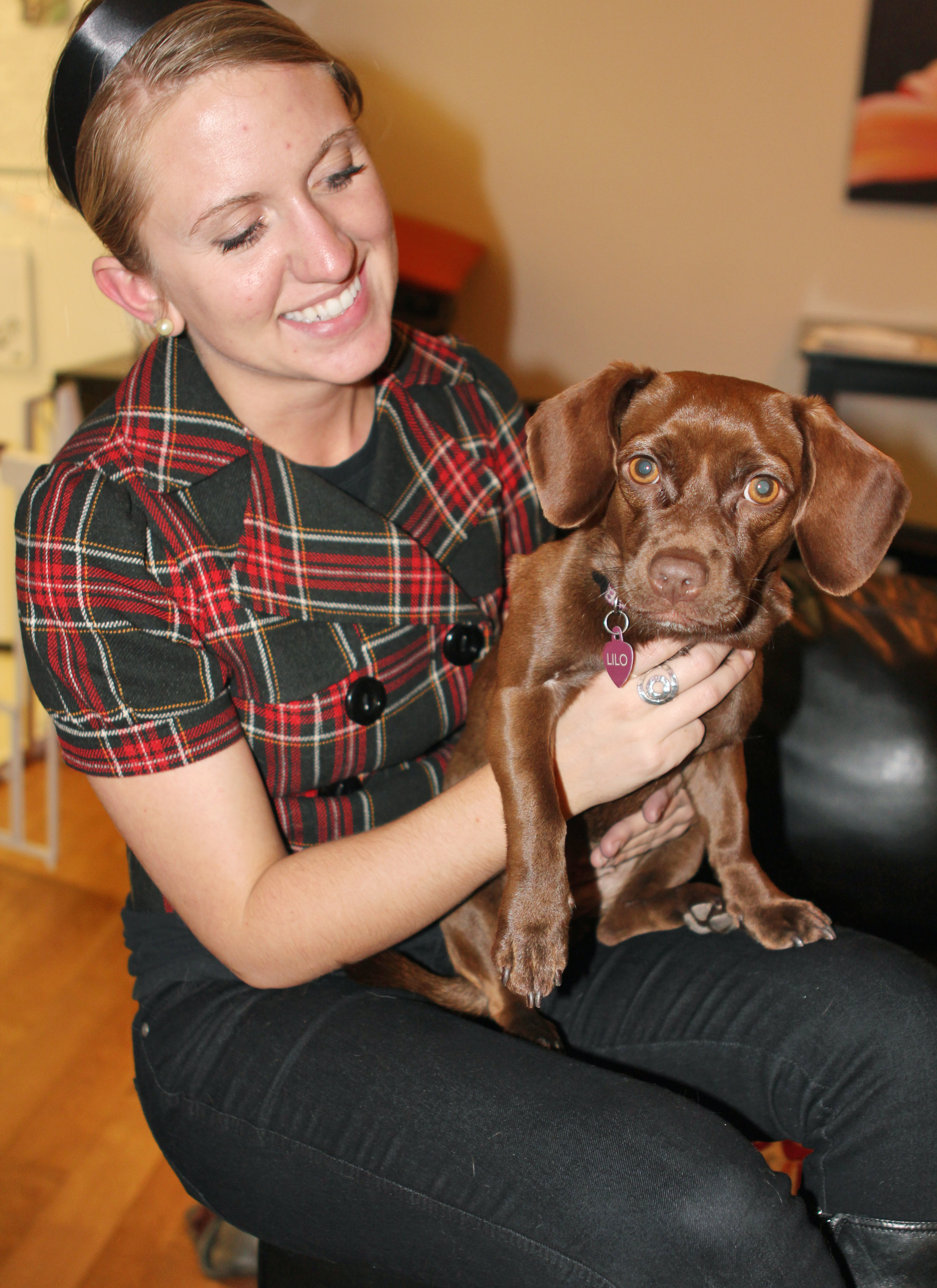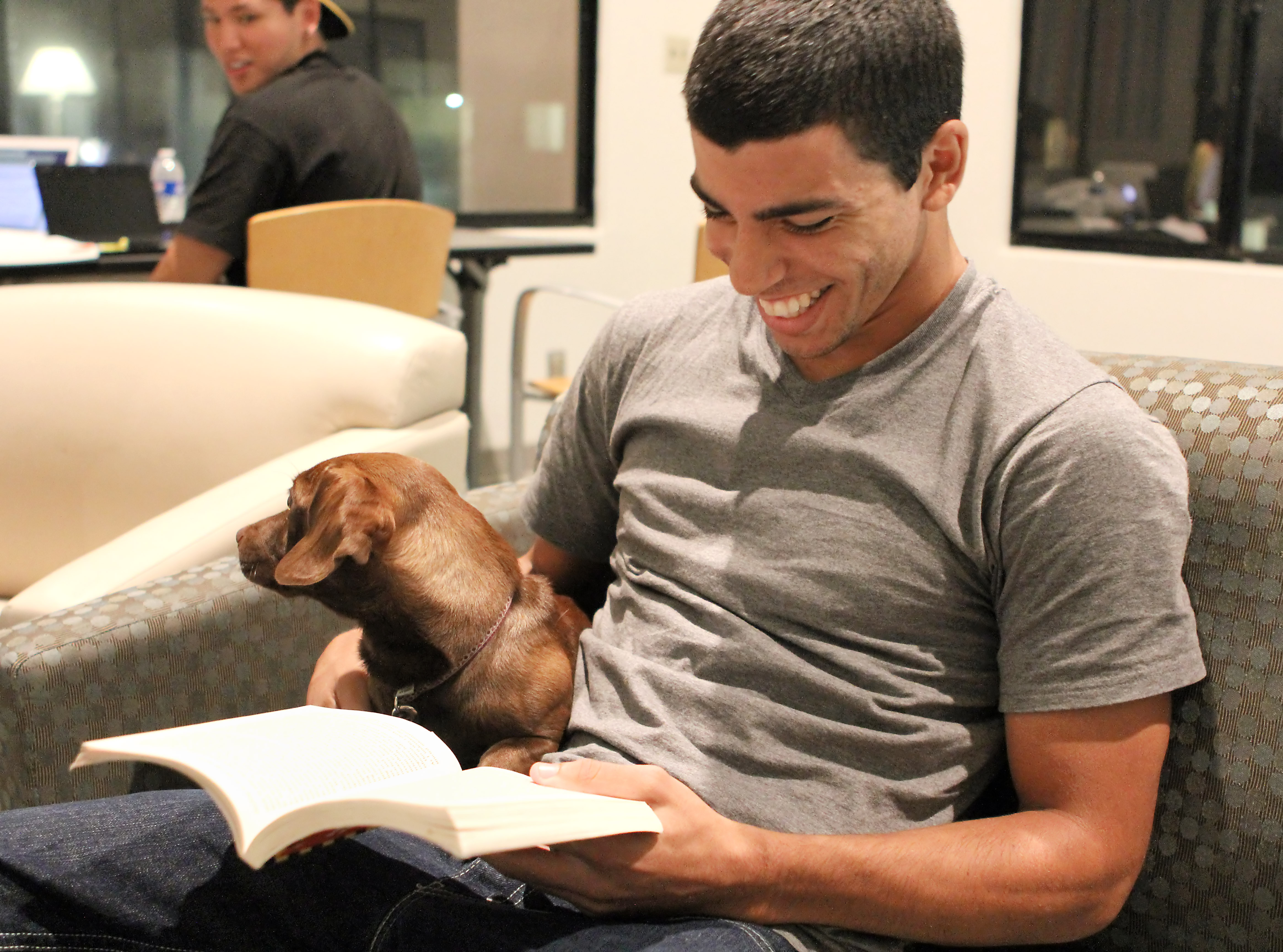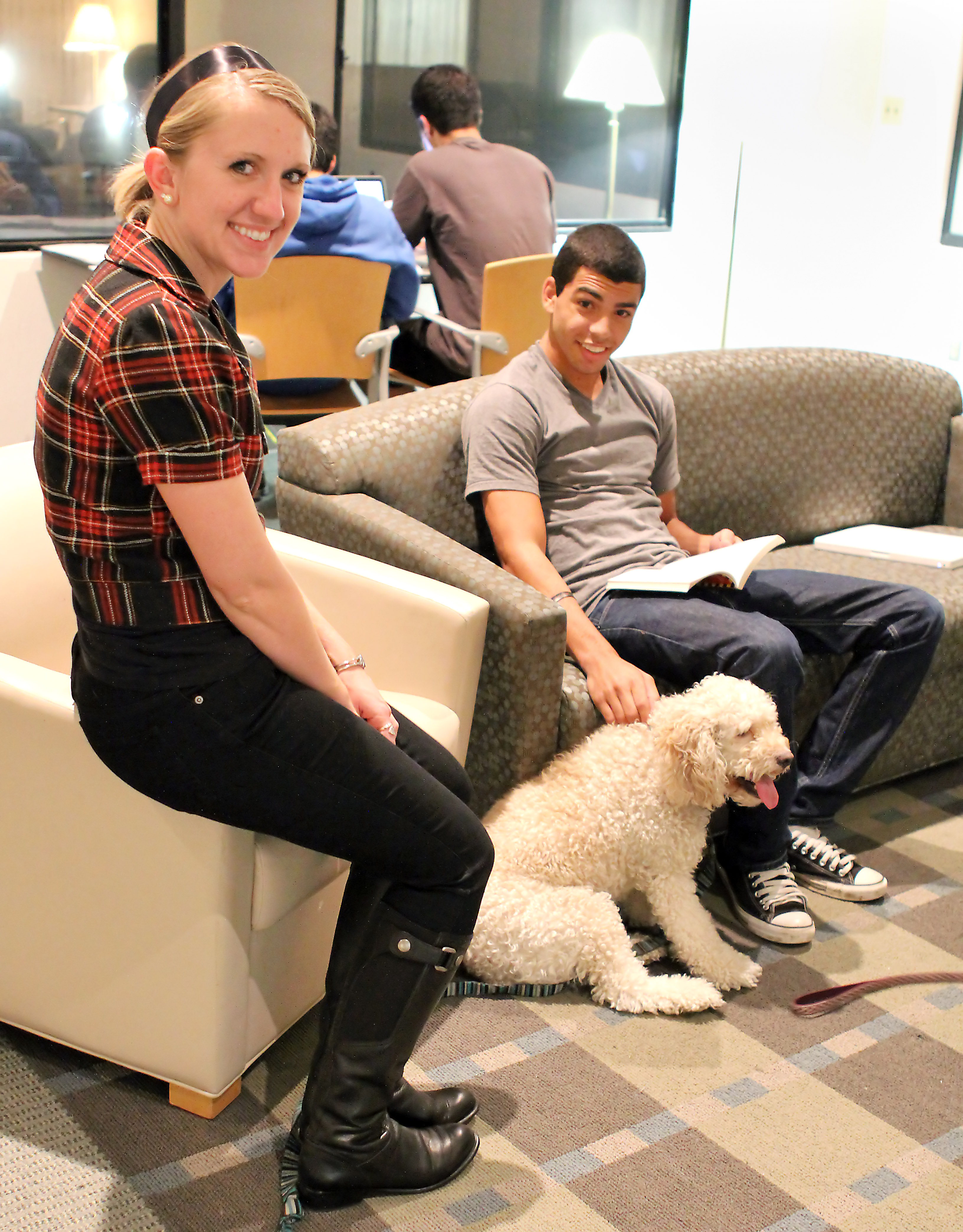

Third-year political science student Ben Sanchez cuddles with a puppy in a study lounge on campus.
Prancing among scattered notes and textbooks, two small dogs play with students during an impromptu visit to a Delta Terrace study lounge.
Laura Paulson, an assistant resident director who lives in an apartment adjacent to Delta Terrace, sometimes brings her two dogs to the study lounges for students to play with during midterms or finals as a way to relax.
The pet community on campus began four years ago after a pet policy for faculty housing was introduced that allowed full-time faculty apartments, which are adjacent to residence halls, to house pets, said ORL director Suzanne Seplow.
About eight of the faculty members living on campus have house pets, Seplow said. Paulson said the ability to bring her dog Memo with her to UCLA was one of the reasons she took the job.
“I considered him a part of my family that wasn’t something I was willing to give up for the job, and ORL tried very hard to accommodate him and thankfully they were able to,” Paulson said.
While no pets are allowed in the residence halls, with the exception of fish in tanks below 10 gallons, faculty apartments fall under a separate category, said James Gibson, director of the UCLA office of Environment, Health and Safety.
Although there are no specific health codes that prohibit pets in residential buildings, it is UCLA’s policy that only service animals and police dogs are allowed, Gibson said.
Besides the faculty pets, there are also a few students living with animals in the halls holding special permits from the Office of Students with Disabilities, Seplow said.
In order to obtain a permit for a service animal, students must file an appeal through OSD and show that they have a documented disability and explain how the animal helps them and where it was trained, said Ed McCloskey, assistant director of OSD.
Currently, only one or two students have service animals with them, Seplow said.
In the past, war veteran students have had “therapy animals” to help them deal with anxiety or post- traumatic stress disorder, McCloskey said.
Current faculty has noticed how animals calm students down during the anxiety of midterms and finals.
“Animals are good for emotional support,” McCloskey said. “The connection to the animal can make up for something you’re lacking, or it can alleviate stress.”
Although many students who live in the residence hall next to Paulson’s apartment are unaware that Memo and her second dog Lilo live there, several said that the dogs remind them of home and help during difficult school weeks.
“It’s nice, when everyone has their study faces on (during midterms), to play with something that is enjoying life,” said Sydney Leshin, a third-year Delta Terrace resident. “It reminds you to lighten up a little.”
Paulson often has five or six different pet socials planned in residence halls during finals week.
“There are always distractions during midterms and finals, and while this is another distraction, because of all of the research that has been done on the benefits of having a dog, I think it helps a lot of students,” Paulson said.
Because of the possibility of some students being uncomfortable around dogs, Paulson said that she is very careful with her pets, keeps them on a leash, and makes sure they do not go near students who are scared of dogs.
Although there have been no complaints from students since the new pet policy has been implemented, ORL makes sure to keep in consideration students who are scared of dogs as well as those who are allergic to animals, Seplow said.
“Most of our apartments are separate from the actual community, but if there was a real complaint, then the residents would win and we’d ask the faculty to move their pets,” Seplow said. “Fortunately, we have only had the benefits of having the animals around so far.”
